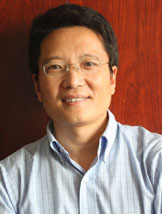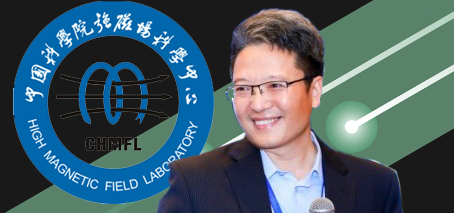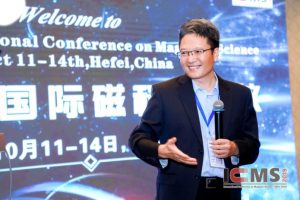
New FLEET PI Professor Mingliang Tian is vice-director of the Chinese Academy of Science’s High Magnetic Field Laboratory
FLEET extends a warm welcome to Professor Mingliang Tian, who joins the Centre as a new Partner Investigator.
Professor Tian is vice-director of the Chinese Academy of Science’s High Magnetic Field Laboratory in Anhui province, China, which becomes a new partner organisation for FLEET.
At the CAS, Professor Tian’s group studies on low-dimensional electronic systems and artificial nanostructures such as high-Tc superconductors, bismuth nanowires and nanoribbons, as well as topological insulators and magnetic skyrmions.
“Nanodevices built up by these nanostructures have endless interests,” says Professor Tian. “Using micro/nano processing technology, we can design and fabricate different nanodevices, which are ideal platforms for us to study physical properties for future applications.”
The new partnership cements existing collaborations. FLEET’s Prof Lan Wang (RMIT) has been working with Professor Tian’s group recently to study 2D magnetic materials, vdW ferromagnetic heterostructures and topological condensed matter systems.
For example, Professor Tian collaborated on a recent FLEET study unlocking new magnetic properties in 2D Fe3GeTe2 (FGT), with exciting potential for the emerging field of ‘spintronics’.
High magnetic field is extremely important for probing the details of the Fermi surface of a material. Once the Fermi surface is clear, most of the properties of the material can then be clarified.
Tian Mingliang’s research into low-dimensional physics began in the 1990s at the University of Science and Technology of China (USTC), and continued at Pennsylvania State University’s Center for Nanoscale Science and Department of Physics, where he studied charge and spin transport properties in confined geometries.
He joined the CAS high-magnetic field laboratory in 2010 with a title of “A Hundred Talent Scholar.”
His recent research interests include: synthesis, design and physical properties in low-dimensional and mesoscopic system; superconductivity and magnetism in hybrid system.
Professor Tian will visit FLEET in Australia in December this year, presenting his most-recent high-magnetic field research at the Centre’s annual workshop in Lorne, Victoria.
“This new partnership will be a good beginning for future collaborative research on quantum materials under extreme conditions,” says Professor Tian. “We look forward to welcoming FLEET scientists to carry out the experimental research under high magnetic field or high pressure.”


